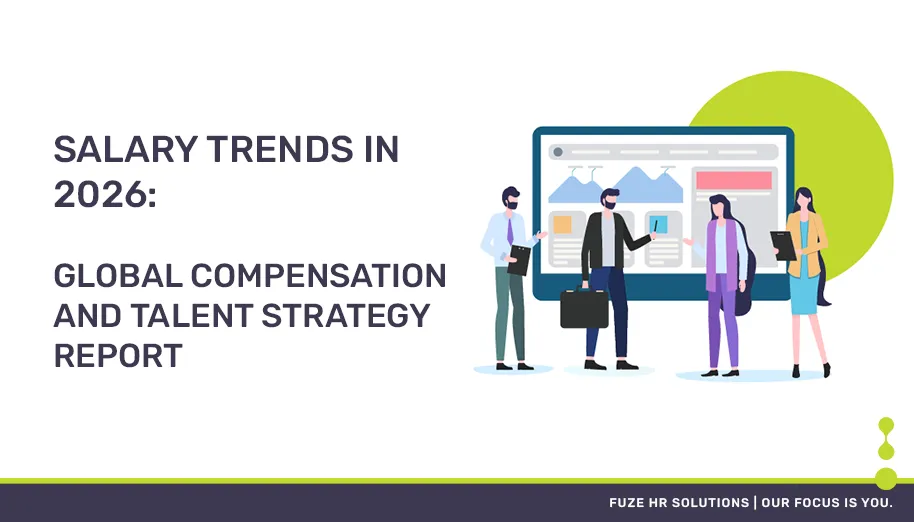The world of work is in constant flux, but the pace of change we’re experiencing today is unmatched. Technological advancements, shifting global economies, demographic changes, and the urgent need for a green transition are converging to reshape the labor market in profound ways. The World Economic Forum’s Future of Jobs Report 2025 offers a comprehensive look at these trends, highlighting the jobs of tomorrow and the skills needed to thrive in this evolving landscape. This article will delve into the report’s key findings, focusing on the predicted growth sectors and major drivers that shapes global labour market by 2025.
Future of work: The Drivers of Change in the job market
Several macrotrends are converging to create a perfect storm of change in the job market in 2025. The report identifies five key drivers:
- Technological Change: From AI and automation to advancements in robotics and information processing, technology is revolutionizing industries and redefining job roles. This rapid digitalization is impacting everything from manufacturing and logistics to customer service and administration.
- Geoeconomic Fragmentation: Geopolitical tensions, trade restrictions, and the rise of protectionism are creating uncertainty and reshaping global supply chains. This fragmentation is forcing businesses to adapt and rethink their strategies, impacting hiring and workforce planning.
- Economic Uncertainty: Inflation, economic slowdowns, and the lingering effects of the pandemic are creating a volatile economic environment. Businesses are grappling with these uncertainties, making long-term planning challenging and influencing investment in workforce development.
- Demographic Shifts: Aging populations, migration patterns, and changing workforce demographics are creating both challenges and opportunities. Businesses need to adapt to these shifts by embracing diversity, promoting inclusivity, and addressing potential skills gaps.
- The Green Transition: The urgent need to address climate change is driving a massive shift towards sustainable practices and green technologies. This transition is creating entirely new industries and job roles, while also requiring existing workers to acquire new skills.
The Rise of New Roles: Growth Sectors of the Future

With these converging drivers, new jobs will be created in growing sectors. The report predicts the emergence of several key growth sectors:
- Green Economy: The transition to a sustainable future is fueling demand for professionals in renewable energy, environmental engineering, and related fields. We can expect to see a surge in roles like renewable energy engineers, environmental engineers, and specialists in electric and autonomous vehicles.
- Technology and Data: The increasing reliance on technology is driving demand for experts in AI, machine learning, data science, and cybersecurity. Roles like AI and Machine Learning Specialists, Software and Application Developers, and Big Data Specialists are expected to see significant growth.
- Care Economy: Aging populations and increasing healthcare needs are driving demand for healthcare professionals, particularly nurses, social workers, and counselors. The care economy is poised for expansion, creating new opportunities for those with relevant skills and training.
- Education: As the need for reskilling and upskilling grows, the education sector is also expected to expand. We’ll likely see increased demand for teachers at all levels, particularly those specializing in STEM fields and future-oriented skills.
- Frontline Roles: While some jobs are being automated, frontline roles like farmworkers and delivery drivers are also experiencing growth, driven by factors like increasing e-commerce and changing consumption patterns.
Adapting, Not Declining: Jobs in Transition
While some job roles are being created to answer demands of growing sectors, it’s important to avoid a purely negative outlook on those who are not participating in this change. Many roles aren’t disappearing entirely; they’re evolving.
The report highlights several areas where jobs are at risk of significant change due to automation and shifting demands, but also offers pathways for individuals in these sectors to remain relevant and valuable:
- Clerical and Administrative Roles: Automation and digitalization are streamlining many traditional administrative tasks. However, the need for human interaction, complex problem-solving, and personalized support remains. Individuals in these roles can future-proof their careers by focusing on developing skills in areas like project management, digital communication, data analysis, and customer relationship management. Embracing technology and becoming proficient in relevant software can also enhance their value.
- Data Entry and Processing: While basic data entry is becoming automated, the need for data analysis and interpretation is growing. Individuals can transition by acquiring skills in data analytics, visualization, and database management. Focusing on quality control, data integrity, and understanding the context behind the data will also be crucial.
- Traditional Manufacturing Roles: Automation and robotics are changing the landscape of manufacturing. However, skilled technicians, maintenance professionals, and those with expertise in operating and managing automated systems will be in demand. Upskilling in robotics, automation, and advanced manufacturing technologies is key for those wanting to stay in this sector. Focusing on problem-solving, adaptability, and the ability to work alongside automated systems will be crucial.
The key takeaway is that continuous learning and adaptation are essential for the future of work. Individuals in these transitioning sectors should proactively identify the skills that are becoming less relevant and focus on developing those that are in demand. This might involve taking online courses, attending workshops, or even pursuing further education.
Skills for the Future: Adapting to the Changing Labour Market
To thrive in this evolving job market, individuals need to develop a new set of skills. The report emphasizes the importance of:
- Analytical and Critical Thinking: The ability to analyze complex information, solve problems, and make informed decisions is crucial in a rapidly changing world.
- Resilience, Flexibility, and Agility: The ability to adapt to change, learn new skills, and navigate uncertainty is essential in today’s dynamic environment.
- Leadership and Social Influence: The ability to communicate effectively, collaborate with others, and build strong relationships is increasingly important in a collaborative work environment.
- Technological Literacy: A basic understanding of technology and digital tools is essential for almost all jobs in the future.
- Specialized Skills: In addition to these core skills, individuals will also need to develop specialized skills in areas like AI, data science, cybersecurity, and green technologies to take advantage of emerging opportunities.
Navigating the Transformation: Strategies for Individuals and Businesses
The future of work requires a proactive approach from both individuals and businesses. Individuals need to invest in their skills development, embrace lifelong learning, and be prepared to adapt to change. Businesses, on the other hand, need to invest in up-skilling and re-skilling their workforce, create a culture of learning, and embrace diversity and inclusion. By proactively addressing these challenges, we can ensure a future of work that is both prosperous and inclusive.
The transformation of the job market is not just a challenge; it’s also an opportunity. By embracing change, investing in skills, and fostering innovation, we can create a future of work that benefits everyone. The World Economic Forum’s report provides a valuable roadmap for navigating this transformation, highlighting the key trends, growth sectors, and skills needed to thrive in the years to come. It’s up to us to seize this opportunity and build a future of work that is both dynamic and fulfilling.





